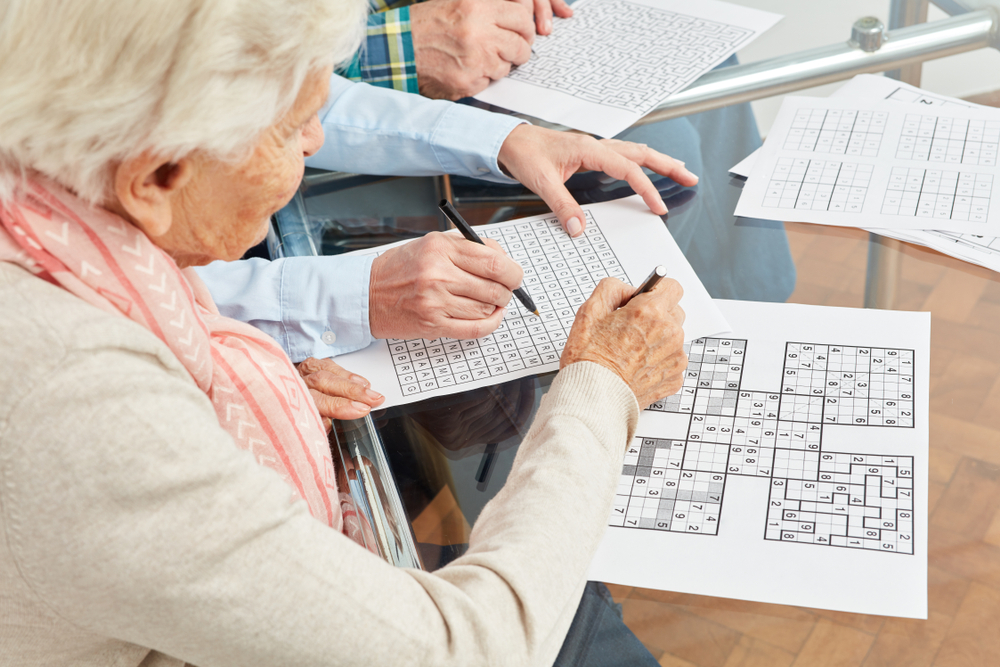Exercising the brain to improve memory, focus, or daily functionality is a top priority for many people, especially as they get older. That said, people of all ages can benefit from incorporating a few simple brain exercises into their daily life. Hearing is also vital to your brains health and keeping it active so if you are struggling to hear or think that you may be effected by hearing loss contact us today and we’ll be happy to help.
Brain exercises
Research has shown that there are many ways you can hone your mental sharpness and help your brain stay healthy, no matter what age you are. Doing certain brain exercises to help boost your memory, concentration, and focus can make daily tasks quicker and easier to do, and keep your brain sharp as you get older.
Here are a list of evidence-based exercises that offer the best brain-boosting benefits.
Have fun with a jigsaw puzzle
Whether you’re putting together a 1,000-piece image of the Eiffel Tower or joining 100 pieces to make Mickey Mouse, working on a jigsaw puzzle is an excellent way to strengthen your brain.
ResearchTrusted Source has shown that doing jigsaw puzzles recruits multiple cognitive abilities and is a protective factor for visuospatial cognitive aging. In other words, when putting together a jigsaw puzzle, you have to look at different pieces and figure out where they fit within the larger picture. This can be a great way to challenge and exercise your brain.
Try your hand at cards
When’s the last time you played a game of cards? Researchers suggest mentally stimulating activities for adults, say a quick card game can lead to greater brain volume in several regions of the brain. The same study also found that a game of cards could improve memory and thinking skills.
Try learning one of these tried-and-true card games:
- solitaire
- bridge
- gin rummy
- poker
Learn a new skill
Learning a new skill is not only fun and interesting, but it may also help strengthen the connections in your brain.
Research f shows that learning a new skill can help improve memory function in older adults.
Is there something you’ve always wanted to learn how to do? Perhaps you’d like to know how to repair your car, use a particular software program, or ride a horse? You now have one more good reason to learn that new skill.
Take a new route
Don’t get stuck in a rut when it comes to your daily tasks. Instead, be willing to try new ways to do the same things.
Choose a different route to get to work each week or try a different mode of transport, like biking or using public transport instead of driving. Your brain can benefit from this simple change, and you might be surprised by how easy it is to change your thinking.
Teach a new skill to someone else
One of the best ways to expand your learning is to teach a skill to another person.
After you learn a new skill, you need to practice it. Teaching it to someone else requires you to explain the concept and correct any mistakes you make. For example, learn to swing a golf club, then teach the steps to a friend.

